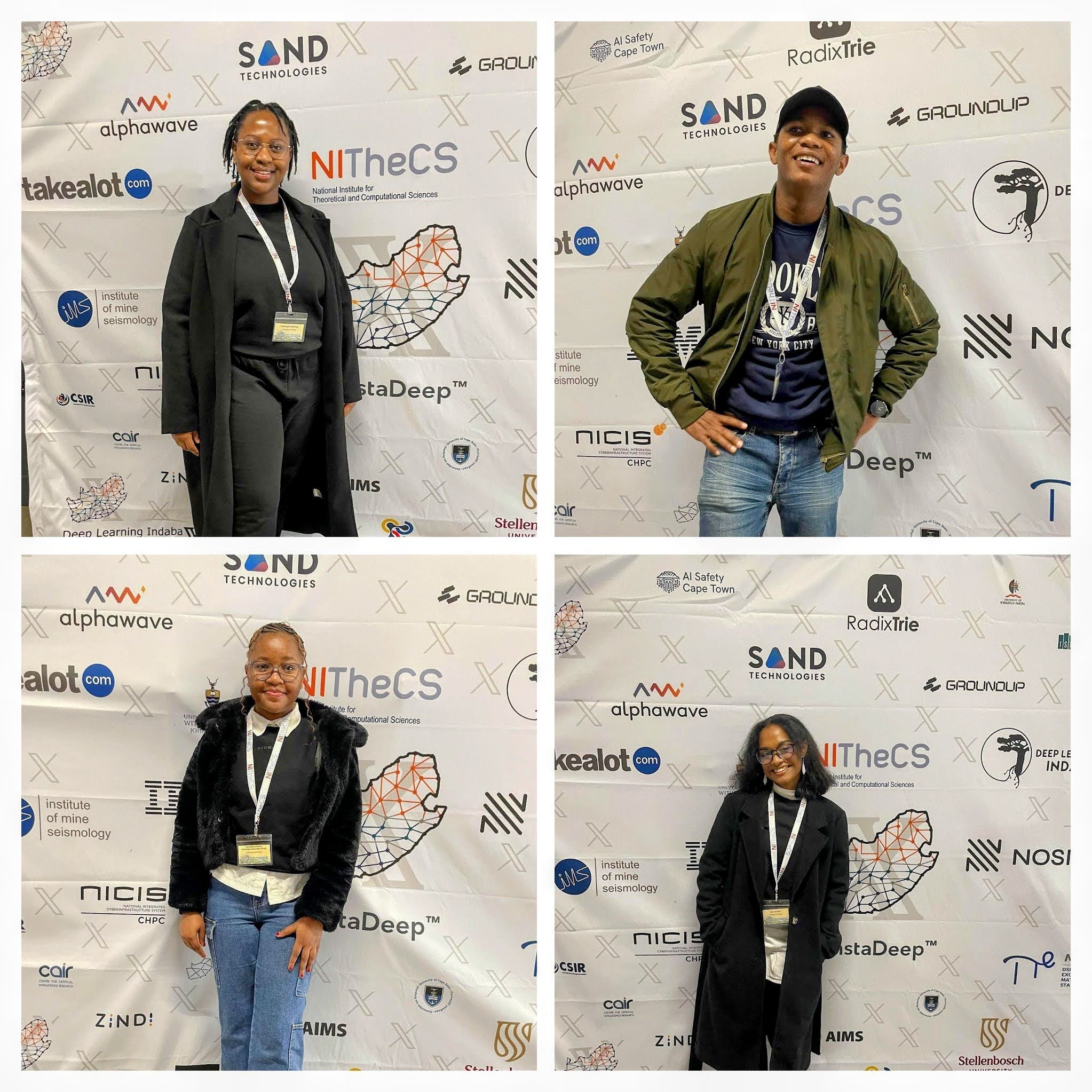DSFSI at IndabaX Stellenbosch 2025: Championing Inclusive AI and Language Innovation
DSFSI at IndabaX Stellenbosch 2025: Championing Inclusive AI and Language Innovation

DSFSI at IndabaX Stellenbosch 2025: Championing Inclusive AI and Language Innovation
Stepping into the world of Artificial Intelligence (AI) and Machine Learning (ML) can feel overwhelming. IndabaX serves as a platform rooted in community building, African-centered innovation, and the inclusive development of solutions. Each year, students, academics, and industry professionals come together from diverse backgrounds to engage in deep discourse, tackling the unique challenges facing South Africa and the African continent at large.
The Data Science For Social Impact Research Lab (DSFSI) at the University of Pretoria is proud to support four emerging scholars—Zion Van Wyk, Nontokozo Manukuza, Thapelo Sindane, and Kelebogile Sathekge—to attend IndabaX Stellenbosch 2025. Through this experience, our students are able to learn, engage, and participate in cutting-edge research, workshops, hackathons, and keynote sessions delivered by leaders in AI and ML from both industry and academia.
Meet Our IndabaX Delegates
Zion Van Wyk
Honours student in Computer Science, Zion is working on the development of Automatic Speech Recognition (ASR) systems for under-represented South African languages. She presented her poster, “Izwi Lakho Liyazwakala: Enhancing Speech Data for SA Languages”, which explores the use of data augmentation techniques such as SpecAugment to improve ASR performance without requiring new data collection. Zion’s research leverages existing datasets (Lwazi, NCHLT), comparing augmentation methods using Word Error Rate (WER) and Phone Error Rate (PER) metrics, and prioritizes equity, accessibility, and cost efficiency in technology development.
Nontokozo Manukuza
Master’s student in Computer Science, Nontokozo is focused on enhancing the ability of large language models (LLMs) to interpret isiZulu idioms using retrieval-augmented finetuning (RAG). Her poster, “No More Lost Meanings: Making AI Understand isiZulu Idiomatic Expressions through Retrieval Augmented Fine Tuning”, emphasizes the importance of inclusive NLP approaches that incorporate the cultural and linguistic richness of African languages. By combining contextual dataset creation with retrieval-augmented training, Nontokozo’s work advances both language preservation and equity in AI.
Thapelo Sindane
PhD student, Thapelo is developing end-to-end systems for South African Sign Language (SASL) Processing, exploring Sign Language Translation and Production using state-of-the-art NLP and Computer Vision technologies. His research includes dataset collection, model benchmarking, and innovative evaluation methods for SASL. Thapelo is also a Deep Learning IndabaX organiser, focusing on fundraising, applications, and logistics to enhance the IndabaX experience for all attendees.
Kelebogile Sathekge
As an assistant at DSFSI, Kelebogile advocates for openness, data/model sharing, and ethical research conduct. Her poster spotlights open-source resources made available by DSFSI, including PuoBert—a Roberta-based language model for Setswana. By promoting these resources, Kelebogile is helping drive data accessibility, transparency, and research reproducibility within the South African and African AI/ML ecosystem.
Looking Forward
We hope that by attending IndabaX, our scholars will not only advance in their studies and careers, but also continue to foster inclusive, African-centered approaches to AI and Machine Learning. Congratulations to Zion, Nontokozo, Thapelo, and Kelebogile for representing DSFSI and championing research that matters.